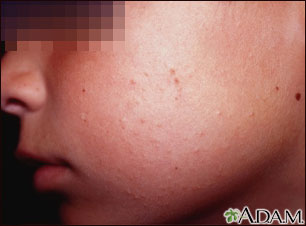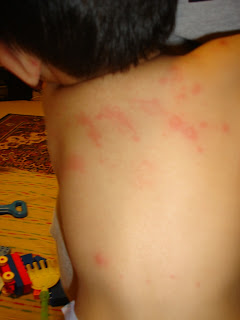Daily Saline Nasal Irrigation May Increase Risk of Infection
Over the past few years, it has become increasingly common for physicians to recommend saline nasal lavage (or sinus rinsing) to patients. The concept that rinsing allergens and pollutants out of the sinonasal cavities will decrease inflammation is certainly an attractive one. Patients, especially those with chronic sinusitis, would report getting gobs of ugly mucous out with each rinse- so the exercise was cathartic, as well. So, it was an easy step to go from recommending "as needed" use to recommending daily preventative use.
Turns out, it may have been a step off a cliff.
A recent study from Georgetown University Hospital School of Medicine suggests that although as-needed use of saline irrigation is beneficial, daily long-term use of nasal saline irrigation (NSI) by patients with recurrent rhinosinusitis (RS) can increase the frequency of acute infection by as much as 60%.
Why is this? The researchers postulate that daily sinus irrigation depletes the sinonasal cavities of a protective layer of mucous which has infection-fighting properties (both due to a barrier function and immunologically active cells and molecules). Washing this "good mucous" away regularly exposes the mucosa (the wet skin lining the inside of your nose and sinuses) to bacteria and other irritants, increasing the likelihood of infection.
When you have an active infection, the short-term (1-2 weeks) use of sinus irrigation helps to wash away the infection-laden mucous. However, once you are well again, it makes sense to leave your protective mucous layer undisturbed.
In the researchers study, the rate of infection decreased significantly in patients who discontinued daily use of saline irrigation.
This elegant study highlights the dangers of assuming that just because a therapy is "natural", it's 100% safe.
My recommendations for patients?
Use saline sinus irrigation 1-2 times daily at the first sign of an upper respiratory infection, and continue until you feel well again. However, if you're still feeling sick 10-14 days into your illness, stop rinsing and see your doctor- you may need an antibiotic.
Turns out, it may have been a step off a cliff.
A recent study from Georgetown University Hospital School of Medicine suggests that although as-needed use of saline irrigation is beneficial, daily long-term use of nasal saline irrigation (NSI) by patients with recurrent rhinosinusitis (RS) can increase the frequency of acute infection by as much as 60%.
Why is this? The researchers postulate that daily sinus irrigation depletes the sinonasal cavities of a protective layer of mucous which has infection-fighting properties (both due to a barrier function and immunologically active cells and molecules). Washing this "good mucous" away regularly exposes the mucosa (the wet skin lining the inside of your nose and sinuses) to bacteria and other irritants, increasing the likelihood of infection.
When you have an active infection, the short-term (1-2 weeks) use of sinus irrigation helps to wash away the infection-laden mucous. However, once you are well again, it makes sense to leave your protective mucous layer undisturbed.
In the researchers study, the rate of infection decreased significantly in patients who discontinued daily use of saline irrigation.
This elegant study highlights the dangers of assuming that just because a therapy is "natural", it's 100% safe.
My recommendations for patients?
Use saline sinus irrigation 1-2 times daily at the first sign of an upper respiratory infection, and continue until you feel well again. However, if you're still feeling sick 10-14 days into your illness, stop rinsing and see your doctor- you may need an antibiotic.
![Reblog this post [with Zemanta]](http://img.zemanta.com/reblog_e.png?x-id=a837c234-a024-458f-8025-deb72ff4a170)



My dad (a chemical engineer by training) used to always say that "Hemlock is all natural too!" Thanks for this post. My son has chronic sinus infections and does not respond to zyrtec or singulair (likes the taste, but Altoids are equally effective) so we use this irrigation with every infection. It is good to have an idea about how often to do it.
ReplyDelete